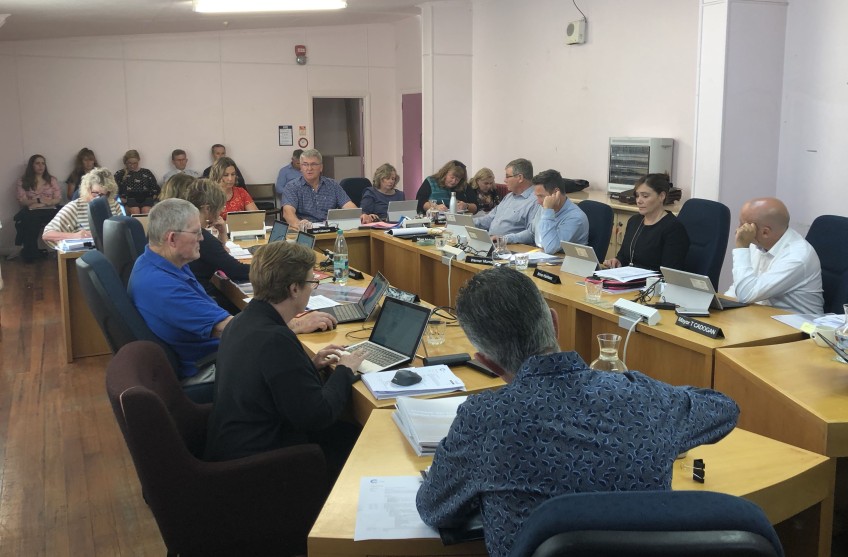
Cromwell's election race is suddenly interesting
It’s one of the fastest-growing small towns in the country.
There are new subdivisions, new locals, new classroom blocks at its three schools, and new businesses.
And, thanks to a flurry of last-minute nominations, there’s chance for new faces to sit alongside familiar ones on council ward and community board seats after the upcoming local body elections.
Whether Cromwell’s elected decision-making bodies see some fresh-blood, the same old blood or a mix of the two, lies in the hands of residents and ratepayers.
All candidates will have to put up a fight as they vie for either one of four Cromwell ward seats on council or one of four vacancies on the Cromwell Community Board.
Community Board chair and deputy mayor Neil Gillespie says that’s a good thing.
Last time round, in the elections in 2016, he and his two fellow Cromwell councillors – Shirley Calvert and Nigel McKinley - got the green-light to council as there were three seats available and three people putting up their hands to take them.
“The positive thing for the community is there is an election.”
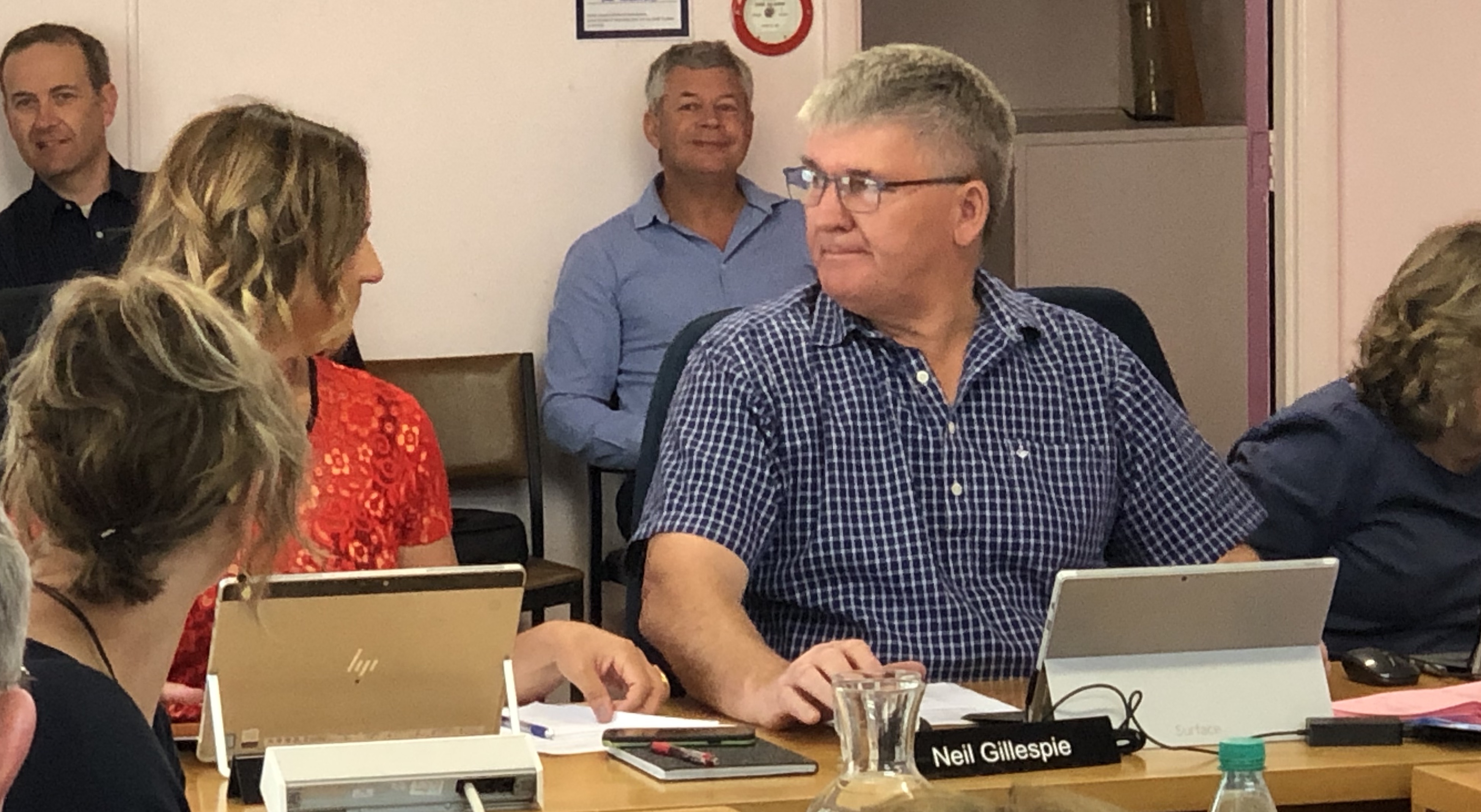
Neil Gillespie - "elections are a good thing."
He’s happy to have to prove to voters in the coming weeks he deserves his spot, he says.
“It’s fine. So I should. Otherwise you can take the view the community is happy with what you’re doing, or they don’t care. And, you don’t know which it is.”
This year, for the first time, the Cromwell ward will have four seats around the council table – the result of a necessary representation review earlier this year and a reflection of the rapidly growing population of the town.
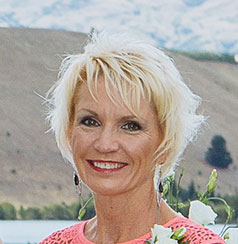
Cheryl Laws
Neil, Shirley and Nigel have all thrown their hats back in the ring for another council term, while newcomers Jocelyn Johnstone, a Cromwell Cultural Centre trustee, and Cheryl Laws, wife of Otago Regional Councillor Michael Laws, will be attempting to oust them.
Whichever four are voted in, council will pick three of them to automatically sit on the seven-seat Cromwell Community Board, leaving four spots for voters to fill with their preferred representatives.
When it comes to the nominations for the community board, all but one standing board member are keen for another three years.
Vying for their spots are four newbies – Tony Buchanan, David George, Luke Win, and Jocelyn Johnstone, in addition to being nominated for the Cromwell ward on council.
Cromwell is growing and groaning, and Neil says the board this term has been grappling with some big issues.
Front and centre: The Cromwell Masterplan – aimed at providing a clearer direction for the town’s future planning.
In June, the board adopted stage one, the Spatial Plan, something of a blueprint for where new houses and other amenities and industry will go, how squished in or spread out the community is willing to have them, and what sort of green spaces might connect or separate them.
There’s been opportunity for Cromwellians to have their say: online surveys, mail-outs, and pop-up info sessions, among them. And, it’s been genuine, Neil says.
“In all my time in local government (he’s into his second decade), that’s the most engagement I’ve ever seen.”
For the board, the masterplan process is “gold”, he says, providing a mandate for where-to from here.
Members of the present board are invested in the process, he says. All-bar-one want back in.
Neil’s advice for potential newbies: Get up with the play.
“If you come in cold, it brings some advantages, and some challenges…They need to do some work to get their head around what’s going on and hit the ground running.”
Although the current community board may be finishing its term on a masterplan high, there’s also been some political manoeuvring over the three-year-period that has had news editors both local and national clapping their hands with glee.
Neil calls them “hiccups”.
Back at the end of 2016, the fresh-faced board threw a spanner in the works of the planned refurbishment of the Cromwell Memorial Hall.
Their predecessors had months previously voted to adopt design plans to upgrade the hall after a decade-and-a-half’s toing and froing.
In December 2016, the newly-elected board decided not to accept a tender due to concerns from some board members about design, scope and cost.
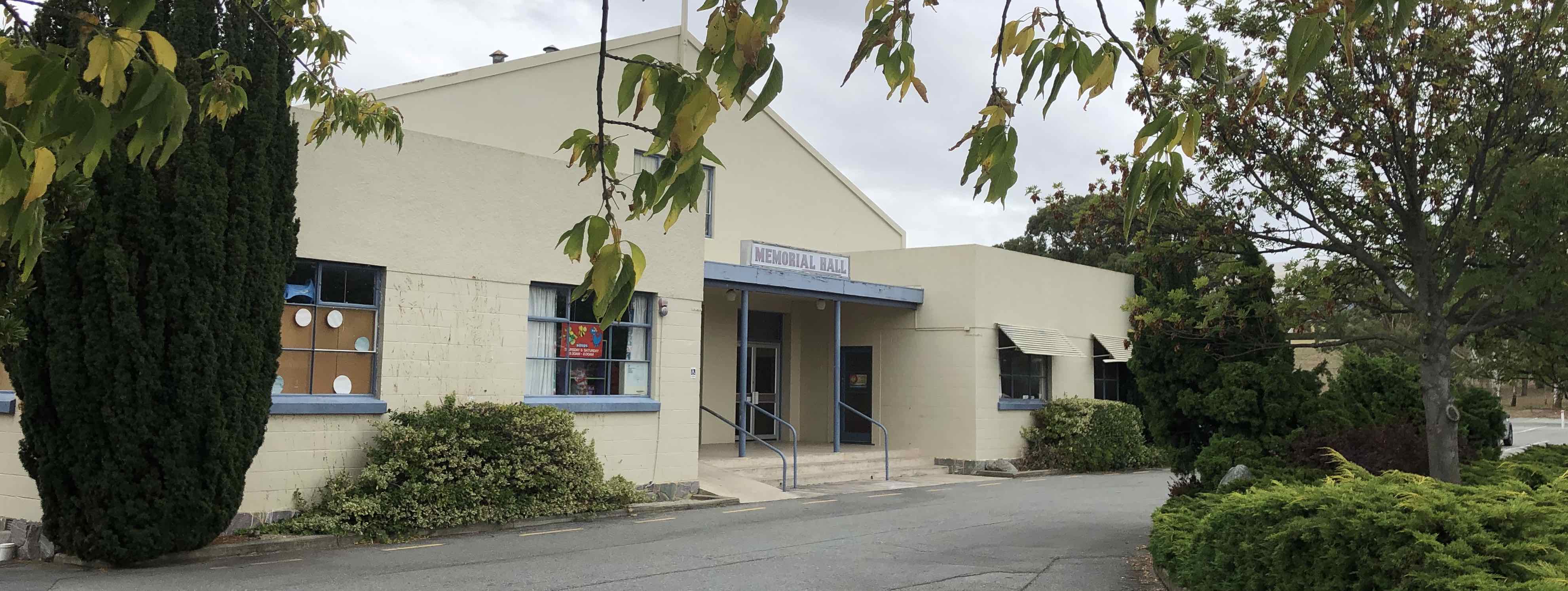
The aging Cromwell Memorial Hall - why is it taking so long to find a solution?
For some of the carry-over board members it was a frustrating move.
However, its instigators were adamant the needs and aspirations of the town had rapidly surpassed the spruced-up-old-hall plan.
By April 2017, the board had narrowly voted to suspend all upgrade work and consider three new build options instead.
In the meantime, on a separate trajectory to the board, the Cromwell Cultural Centre Trust was established - a group of locals keen to drive the build of a cultural centre (think: theatre, museum, gallery, convention centre) to replace the memorial hall, but needing authority from the board to do so.
The two trajectories may yet collide - Jocelyn Johnstone is standing for both the community board and council and is a Cromwell Cultural Centre trustee.
Hiccup number two: A seemingly surprise bid by board members Shirley Calvert, Robin Dicey, Annabel Blaikie and Werner Murray to oust board chairman Neil Gillespie in August last year.
Each episode in the series was lapped up by news outlets and thrashed out on social media.
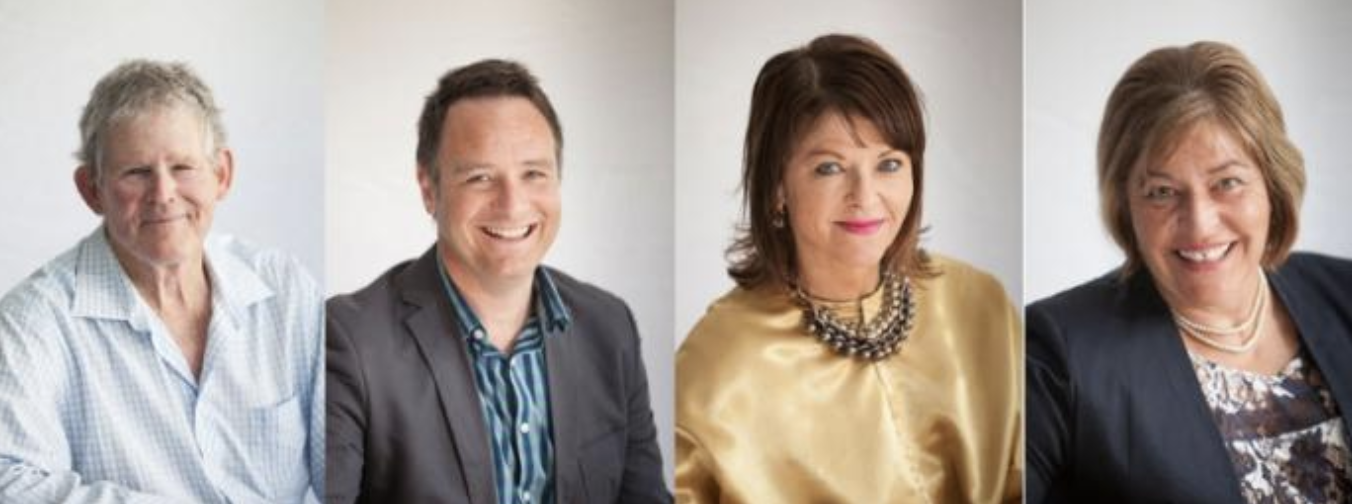
The Cromwell Four - Robin Dicey, Werner Murray, Annabel Blaikie and Shirley Calvert.
The move reportedly blindsided some other members of the board, had Central Otago Mayor Tim Cadogan jumping to Neil’s defense, and largely left locals scratching their heads in bewilderment.
Reporting at the time, Crux said the “Cromwell four”, as they were dubbed, questioned Neil’s close ties with the mayor, his leadership of board meetings, and his commitment to Cromwell-specific issues as he juggled his bigger-picture role on council.
Then, weeks after ripples first began, a public statement from council CEO Sanchia Jacobs saying it was all over.
The procedure triggered by the four was stopped by them. There had been "unintended consequences", including the high level of media interest and concern in the community, she said.
Neil happily admits that when he sits around the council table, he wears his “council hat”.
It’s about making decisions that take into account the district as a whole, not just the Cromwell perspective, he says.
At a community board level, potential members can’t go making any election promises, he says.
“It’s really important to not bring agendas to the table.
“You only have one vote. You have to work with a team of others, reflecting what the community wants and its aspirations.”
The community is rapidly changing before the very eyes of its residents. There’s no shortages of quandaries and questions.
But, regardless of who ends up comprising the new community board after voters have their say in October, Neil’s clear on the question they as a group need to ask as they embark on a fresh three-year term of governance: “What does it (Cromwell) need to go forward and along the way motivate the community that has had a lot of changes to get involved and give a damn?”





























